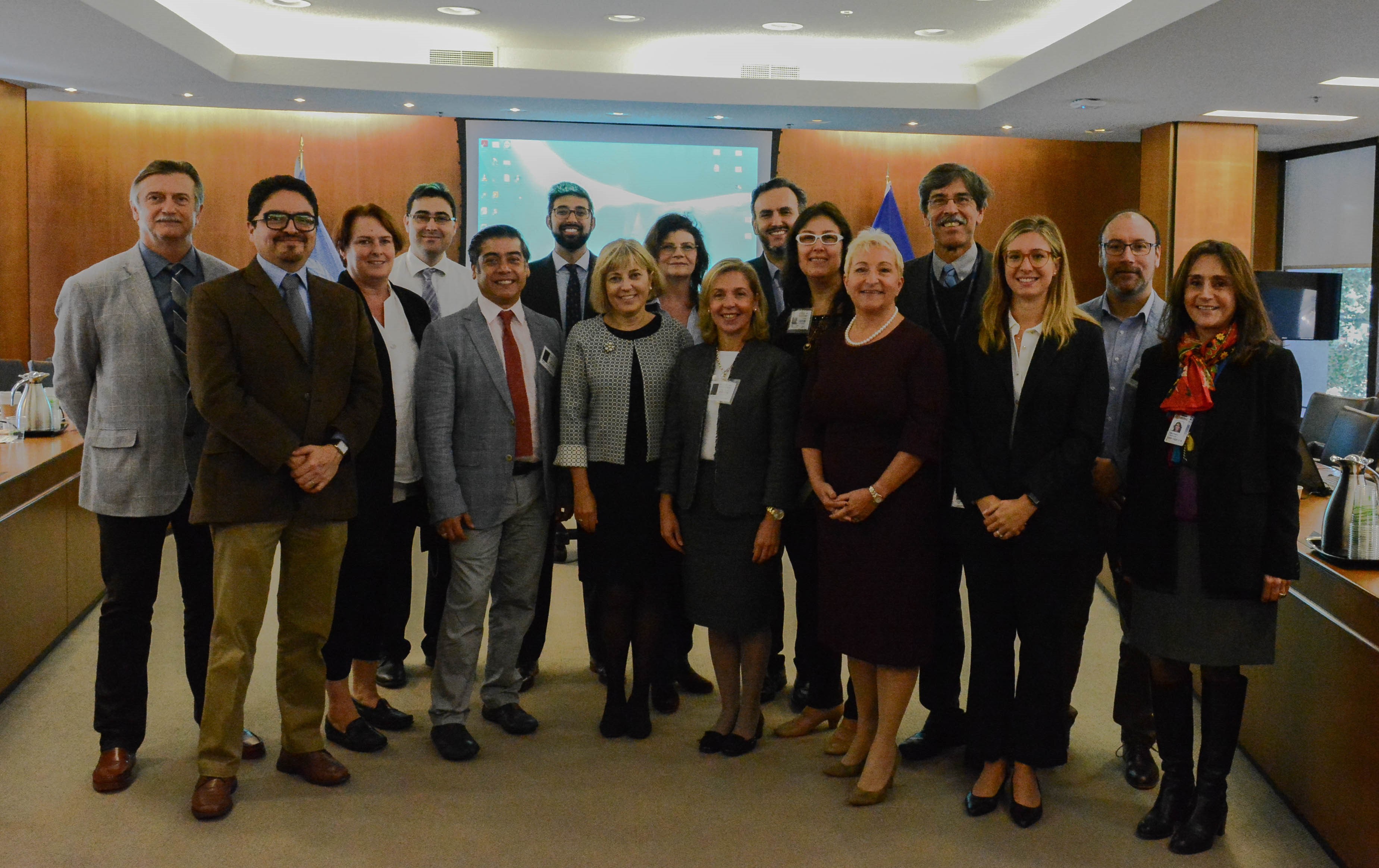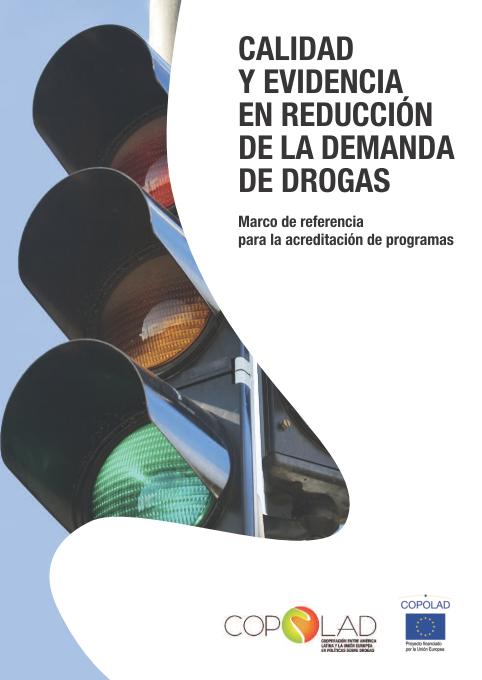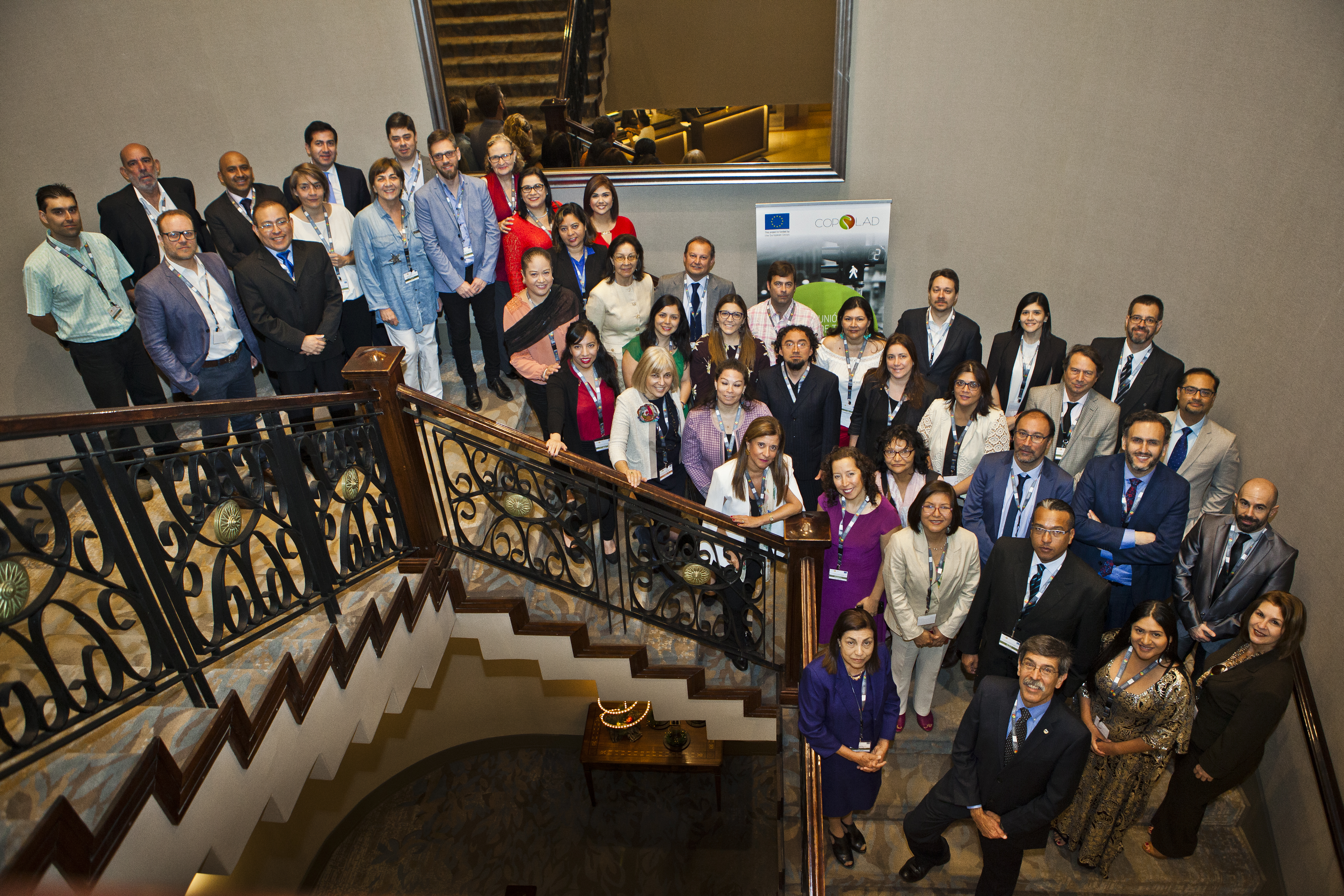Latin America and the Caribbean successfully conclude the piloting of quality and evidence criteria in Prevention and Treatment and advance in the incorporation of quality in their regulatory frameworks
With the leadership of the National Drug Council (NDC) of Trinidad and Tobago, together with the technical assistance provided by COPOLAD, seven Caribbean countries have completed the validation and piloting of quality criteria in order to implement national quality assurance systems in DDR. Guyana, Antigua and Barbuda and Dominica piloted the prevention criteria, while Saint Lucia, Bahamas and Trinidad and Tobago, the treatment criteria. By its side, Jamaica took on the challenge of validating both prevention and treatment criteria. Next June, the countries will meet in Paramaribo (Suriname), to analyse the results and generate strategies that will allow them to move forward in the implementation of national accreditation systems, as well as extend these best practices to all countries in the region.
COPOLAD's quality criteria pursue the avoidance of discrimination by sex, race, religion or physical or mental conditions; respect for human dignity; and recommended effective interventions based on scientific evidence, among others, in treatment and prevention programmes.
As we have already reported in previous editions of this newsletter, a total of 174 standards were adopted by the countries of Latin America and the Caribbean, being twenty-two countries of the CELAC, which, after language validation considering relevant cultural, legal and linguistic factors in each country, built the instrument used for the field work evaluation, aiming to ensure that the piloting process was adjusted to the actual contexts.
In Latin America, the Costa Rican Drugs Institute (Instituto Costarricense de Drogas, ICD), leads a group formed by ten countries that are concluding the piloting of 25 common criteria for DDR and 52 criteria for prevention criteria. The countries participating in this group are Argentina, Chile, Colombia, Costa Rica, Guatemala, Honduras, Mexico, Panama, Peru and Venezuela, and work with drug abuse prevention programmes in local contexts, such as the school, community and working environment.
For its part, the National Service for the Prevention and Rehabilitation of Drug and Alcohol Consumption (Servicio Nacional para la Prevención y Rehabilitación del Consumo de Drogas y Alcohol, SENDA) of Chile, leads the treatment group, which, together with Argentina, Colombia, Costa Rica, Cuba, Ecuador and Uruguay, is concluding the validation of 53 criteria for treatment and 25 common criteria for DDR, which make up the advanced level. Likewise, El Salvador, Guatemala, Honduras, Mexico, Panama, Paraguay, Peru and Venezuela, have worked on 39 criteria for treatment and 18 common criteria for DDR, of the basic level.
In both the treatment and prevention group, the Ibero-American Network of NGOs Working in Drug Addiction (Red Iberoamericana de ONG que Trabajan en Drogodependencias, RIOD), included centres and programmes that actively participated in validation and piloting, as a way to promote work in quality and evidence from civil society organizations.
The prevention and treatment groups of Latin American countries had the chance to meet and jointly analyse the preliminary results of piloting in this region during the month of November 2018, in Santiago de Chile.
These meetings, in addition to allowing a joint review of the outcome of the validation exercise, provide countries with the opportunity to explore common strategies to move forward with the establishment of national quality assurance systems and to share best practices. In this sense, the experience of Chile, a country that has already implemented a national system of accreditation of treatment centres, stands out. The purpose of all the activities carried out in this field during COPOLAD II is to help pave the way for all the countries of the CELAC to incorporate, as a first step, the quality assurance objective in the annual planning of each national drug agency; strengthen the expert groups with which work was conducted during the piloting, in order to constitute more permanent intersectoral and inter-institutional advisory boards that accompany the implementation of the national accreditation system; and to foster a stable and systematic coordination between National Drug Agencies, Ministries of Health and the accreditation body (according to the various realities), as a core that designs and plans the normative and/or legal process that will be required in each country to form the national systems of quality assurance in DDR programs.
This process maintains the recognition of the active participation of PAHO/WHO, CICAD-OAS, CARICOM and RIOD, in an effective, collaborative joint work within the framework of COPOLAD.
The coordination between UNODC, PAHO/WHO, CICAD/OAS and COPOLAD is progressing in order to have essential quality joint standards in the field of treatment of problematic drug use
We continue to move forward very positively in advancing the processes and operationalizing the agreements reached by all the participating institutions in two recent meetings held in Washington DC. The first one was jointly organized by the Pan American Health Organization (PAHO/WHO) and COPOLAD, and the second one was convened by the Inter-American Drug Abuse Control Commission and the US. Department of State Bureau of International Narcotics and Law Enforcement Affairs (INL), held during the month of February of this year, which, in addition, counted with the participation of the United Nations Office on Drugs and Crime (UNODC) and the World Health Organization (WHO).

It was recognized that both the standards and quality criteria developed by UNODC and WHO, and supported by the INL, as well as the quality criteria developed within the framework of COPOLAD, share important similarities, on the basis of this, the opportunity was explored to develop a subset of "Essential Standards" in common as well as a common of "quality assurance" mechanism based on both initiatives, as well as the importance keeping loyalty to these processes separately when appropriate, for example, that these "Essential Standards" be able to complement validation processes already carried out in many countries with the support of COPOLAD (Argentina, Chile, Colombia, Costa Rica, Cuba, Ecuador, El Salvador, Guatemala, Honduras, Jamaica, Mexico, Panama, Paraguay, Peru, St. Lucia, Trinidad & Tobago, Uruguay and Venezuela), or progress made in other countries with the support of the INL (for example: The validation of UNODC standards in Afghanistan, and the training on UNODC quality assurance instruments and mechanisms conducted in Egypt, Nigeria, Vietnam, Laos, United Arab Emirates, Kazakhstan, Kyrgyzstan, Tajikistan, Uzbekistan and Indonesia). It is, therefore, an interinstitutional work model, which aims to contribute significantly to the improvement of care services at the international level.
Launching of the first international edition of a new COPOLAD online course for Latin America and the Caribbean
In this first quarter of 2019, the first international edition, in Spanish and English, of the COPOLAD course "Comprehensive approach to the prevention and reduction of the adverse consequences of drug use in populations in a situation of high vulnerability: A public health strategy" was launched, whose contents were developed last year. Its objective is to train in strategies for the mitigation of the adverse consequences of drug use, with emphasis on people in high vulnerability from a sanitary and social point of view. More than 100 public sector professionals from different Latin American countries and about 50 professionals from the Caribbean are participating in this training. These courses count with the logistical and pedagogical support of the Secretariat of Comprehensive Policies on Drugs of the Argentine Nation (Secretaría de Políticas Integrales sobre Drogas de la Nación Argentina, SEDRONAR) of Argentina and with the National Council on Drug Abuse (NCDA) of Jamaica.

At the same time, in the Caribbean, the first international edition of the course "Comprehensive and Integrated Socio-sanitary Care System for Drug Dependence from Primary Care" is being implemented, focusing on strengthening the dissemination and implementation of the public health approach and respect for human rights, addressing problems related to the consumption of alcohol and other psychoactive substances, highlighting the relevance of the coordination of social and healthcare services in the reduction of the impact of these problems in the population. A total of 45 professionals participate in this edition.
National Editions of the courses
New countries are joining the opportunity offered by COPOLAD to develop national editions of the virtual courses developed within the framework of the programme. In this context, Guatemala, Bolivia, Argentina, Jamaica and Venezuela have started national editions of various COPOLAD courses. We are pleased to share the material prepared by the Executive Secretariat of the Commission Against Addictions and Illicit Drug Trafficking (Secretaría Ejecutiva de la Comisión Contra las Adicciones y el Tráfico Ilícito de Drogas, SECCATID), for the start of the course in Guatemala:
From COPOLAD, we reiterate the invitation to all countries interested in offering COPOLAD virtual courses to their professionals. For more information click here:




